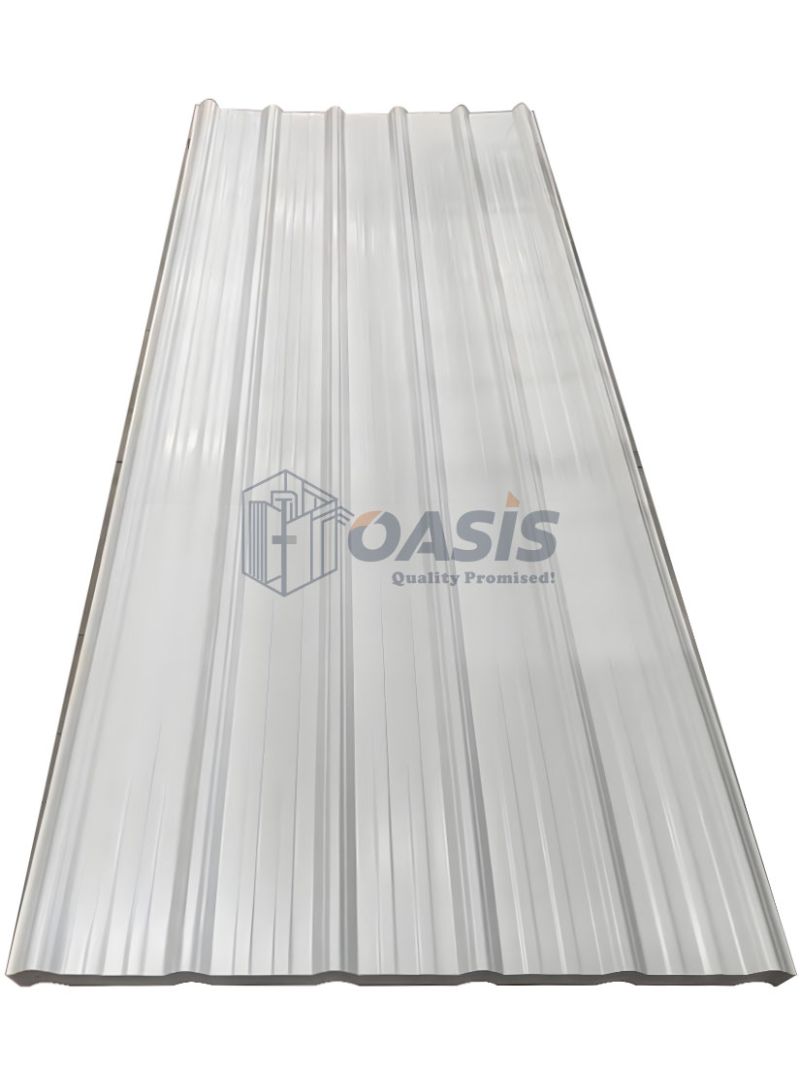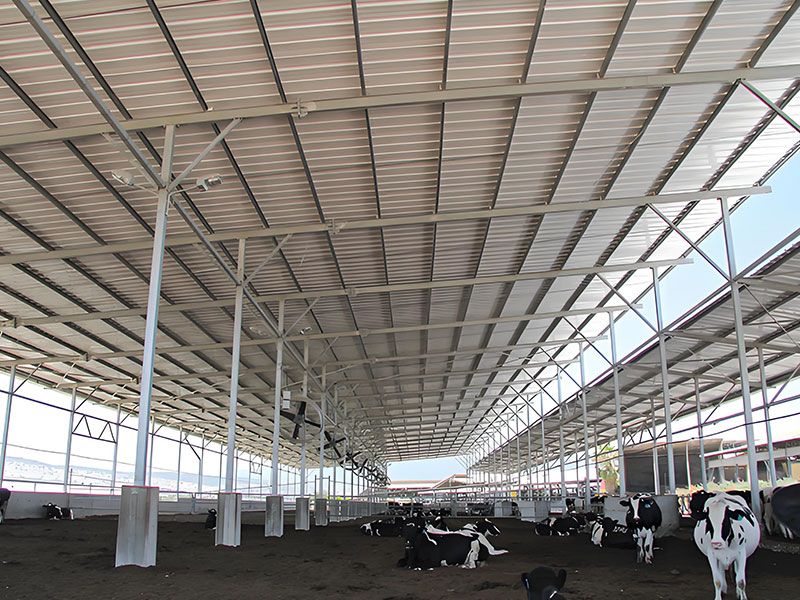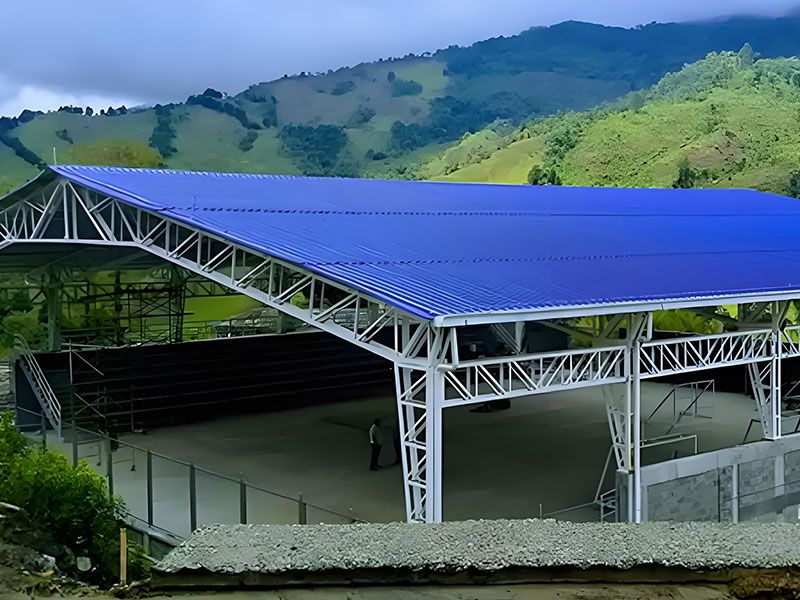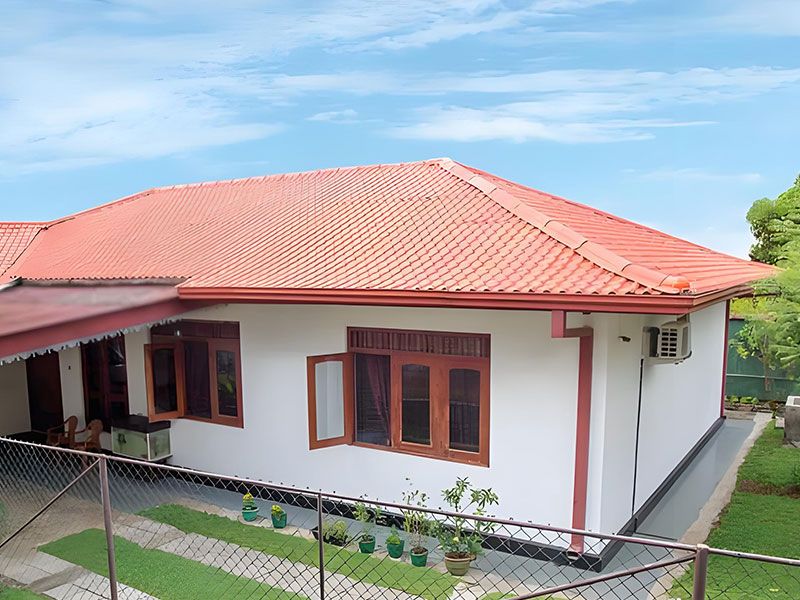Building Industrial Resilience: UPVC Roofing for Factories and Workshops
In the demanding world of industrial construction, the roof of a factory or workshop is a critical component. It must provide robust protection from the elements, contribute to internal environmental control, and offer long-term performance without excessive maintenance. While metal sheeting has been traditional, UPVC (Unplasticized Polyvinyl Chloride) roofing is increasingly recognized as a superior alternative, particularly for its unique blend of chemical resistance, thermal efficiency, and durability.
The Industrial Environment: Unique Roofing Challenges
Factories and workshops often present a challenging environment for roofing materials:
- Chemical Exposure: Many manufacturing processes involve chemicals, fumes, and by-products that can be corrosive to metal roofs, leading to rust and degradation over time.
- Heat Management: Large industrial buildings can become heat traps. Effective insulation and heat reflection are crucial for maintaining comfortable working conditions and reducing energy costs.
- Noise Control: The rumble of machinery and exterior weather can create a noisy environment. The roofing material can impact internal acoustics.
- Maintenance & Downtime: Industrial operations cannot afford frequent disruptions for roof repairs or replacement.
- Lighting: Natural light can significantly reduce energy consumption and improve worker well-being.
Why UPVC Roofing is an Industrial Game-Changer
UPVC roofing sheets are engineered to meet and exceed the stringent demands of industrial and workshop settings:
1. Unrivaled Chemical and Corrosion Resistance
This is arguably the most significant advantage of UPVC in industrial applications.
- Immune to Corrosives: Unlike steel or aluminum, UPVC is completely inert to most acids, alkalis, salts, and industrial fumes. This makes it ideal for factories involved in chemical processing, electroplating, food processing (where cleaning agents are strong), or any environment where corrosive airborne particles are present.
- No Rust: Being plastic, UPVC is fundamentally rust-proof, eliminating the primary cause of failure and costly maintenance for metal roofs in corrosive environments.
2. Superior Thermal Performance
Managing internal temperatures is crucial for both energy efficiency and worker comfort.
- Excellent Insulation: UPVC offers significantly better thermal insulation properties than single-layer metal sheeting. This helps to reduce heat gain in summer and heat loss in winter, leading to substantial savings on HVAC costs.
- Cooler Interiors: Lighter colored UPVC (especially white) has high solar reflectance, meaning it bounces a large percentage of solar radiation away from the building, contributing to a cooler internal environment without heavy reliance on air conditioning.
3. Noise Reduction for a Better Working Environment
Sound control is often an overlooked aspect of industrial roofing.
- Acoustic Dampening: UPVC roofing is far more effective at dampening external noise (like heavy rain or hail) compared to metal roofs. This reduces acoustic pollution inside the workshop, creating a quieter and more conducive working environment for employees.
4. Durability and Long-Term Value
UPVC is built to last in demanding conditions.
- Weatherproof: Highly resistant to cracking, warping, and brittleness caused by UV exposure and extreme weather events.
- Impact Resistance: Maintains its integrity against minor impacts, crucial in industrial zones where debris or unexpected forces can occur.
- Low Lifecycle Cost: While initial investment might be comparable to some metal options, the absence of corrosion, painting, and frequent repairs results in significantly lower long-term maintenance costs.
5. Enhanced Natural Lighting (Translucent Options)
Optimizing natural light reduces energy consumption and boosts productivity.
- Integrated Skylights: UPVC is available in translucent or clear options, which can be seamlessly integrated with opaque panels or used for entire sections. This allows for ample natural daylighting, reducing the need for artificial lighting during the day.
6. Lightweight and Easy Installation
Efficiency in construction translates to cost savings and faster operational readiness.
- Reduced Structural Load: The lightweight nature of UPVC panels reduces the overall load on the building's support structure, potentially saving on construction costs for the framework.
- Rapid Installation: UPVC panels are easy to handle and install quickly, leading to shorter construction timelines and less disruption to industrial operations.
Key Applications in Industrial Facilities
UPVC corrugated roofing is ideal for:
- Manufacturing Plants: Especially those with processes generating fumes or chemicals.
- Workshops & Repair Facilities: Where durability and a bright, quiet environment are beneficial.
- Warehouses & Storage Facilities: Protecting goods from weather, heat, and corrosion.
- Processing Plants (Food, Chemical): Where hygiene and chemical resistance are paramount.
- Open-Air Shelters: For equipment, raw materials, or vehicles.
In conclusion, UPVC roofing offers a powerful combination of chemical resistance, thermal efficiency, acoustic benefits, and long-term durability, making it an economically smart and high-performing choice for modern factories and workshops seeking to build for resilience and efficiency.




